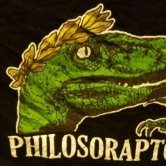All Activity
- Past hour
-
Mason Capwell Garry Buckman Luke Brower Tobias Wolff Jim Carroll Arthur Rimbaud Brandon Darrow Amsterdam Vallon Danny Archer Roger Ferris Frank Wheeler Dominick "Dom" Cobb Edward Daniels "Jack" John Dawson Calvin J. Candle Arnie Grape Fee Herod James Gatz
-
Seriously?
-
Here's iAsk on the question "Why are high protein, low carb diets dangerous to your health?" " While high-protein, low-carbohydrate diets can offer benefits such as weight loss and improved blood sugar control, they also carry potential risks and are not suitable for everyone. The dangers primarily stem from nutrient deficiencies due to carbohydrate restriction, potential strain on organs, and the type of protein sources consumed. According to www.iAsk.Ai - Ask AI: High-protein, low-carbohydrate diets can pose several dangers to your health, particularly when implemented without proper guidance or when certain pre-existing conditions are present. One significant concern is the risk of nutrient gaps [1] [2]. Carbohydrates encompass a wide range of food groups, including fruits, vegetables, and whole grains, which are vital sources of fiber, vitamins (especially B vitamins), and minerals [1] [2] [3]. Severely restricting these can lead to inadequate intake of essential nutrients, potentially causing issues like constipation due to low fiber [1] [2]. For instance, experts recommend 22 to 28 grams of fiber daily for females and 28 to 34 grams for males, which can be challenging to meet on a low-carb regimen [2]. Another major concern is the potential strain on the kidneys [1] [3] [4]. Protein is a large molecule that is filtered through the kidneys, and excessive protein intake can put added stress on these organs [3]. This is particularly dangerous for individuals with pre-existing kidney disease or impaired kidney function, as it can accelerate kidney damage and lead to kidney failure [1] [3]. While some studies suggest that high protein intake does not harm healthy kidneys [4], the American Heart Association (AHA) and other health organizations have raised concerns about potential renal abnormalities [4]. Furthermore, the type of protein consumed can significantly impact health risks [1] [2] [3] [5]. Diets high in fatty cuts of meat, whole dairy products, and other high-fat protein sources can elevate cholesterol levels, increasing the risk of heart disease [1] [2]. Some research even links high animal protein intake to an increased risk of heart failure [5]. Conversely, choosing lean protein sources and plant-based proteins can mitigate some of these cardiovascular risks [1] [2] [5]. Other potential dangers include calcium loss and an increased risk of osteoporosis or kidney stones [1] [2]. While some studies have conflicting results, a high-protein diet can lead to increased urinary calcium excretion, which theoretically could contribute to these conditions [1] [2] [4]. However, some research also suggests a positive association between protein intake and bone mineral density [4]. Finally, the sustainability and psychological impact of highly restrictive diets are also important considerations [1] [3]. Low-carb diets can be difficult to maintain long-term because they often feel restrictive, leading to a higher likelihood of regaining weight [3]. For individuals with a history of disordered eating, such diets can promote unhealthy restrictive eating patterns [1]. Rapid initial weight loss on these diets is often due to water loss, not fat loss, as carbohydrates cause the body to retain water [3]. It is crucial to consult with a doctor or a registered dietitian before starting any new diet, especially one that significantly alters macronutrient intake, to ensure it is safe and appropriate for individual health needs [1] [2] [3]. Authoritative Sources What Are High-Protein, Low-Carb Diets? [WebMD]↩ High-Protein, Low-Carb Diet: Benefits, Risks, and Foods [Verywell Health]↩ Skinny on Low-Carb Diets [Rush University System for Health]↩ High-Protein Diets: Are They Safe? [National Center for Biotechnology Information (NCBI)]↩ High Protein, Low Carb Diet: Benefits, Risks, and Foods [Healthline]↩ When it comes to protein, how much is too much? [Harvard Health Publishing]↩
- 5 replies
-
- parasites
- high protein diet
-
(and 2 more)
Tagged with:
- Today
-
Here's iAsk on the question "Can high protein, low carb diets help kill cancer cells?" " The role of high-protein, low-carbohydrate diets, including ketogenic diets, in cancer treatment and prevention is complex and still under active investigation. While some research suggests potential benefits in slowing tumor growth by depriving cancer cells of glucose, other studies indicate possible risks, such as promoting metastasis or exacerbating cachexia, depending on the cancer type and individual circumstances. According to www.iAsk.Ai - Ask AI: High-protein, low-carbohydrate diets, particularly ketogenic diets, have been explored for their potential to help kill cancer cells by exploiting the metabolic differences between healthy cells and many cancer cells. The primary mechanism proposed is the Warburg effect, where many cancer cells rely heavily on glucose for energy, even in the presence of oxygen, a process known as aerobic glycolysis.[2] [6] By severely restricting carbohydrate intake, these diets aim to reduce the availability of glucose, thereby "starving" cancer cells. In a state of ketosis, the body shifts from burning glucose to burning fat for energy, producing ketone bodies (such as β-hydroxybutyrate, acetoacetate, and acetone) that normal cells can readily use for fuel. [2] [6] However, some cancer cells have dysfunctional mitochondria and may be less efficient at utilizing ketone bodies, making them selectively vulnerable to glucose deprivation.[2] [6] Pre-clinical studies, primarily in mouse models, have shown that low-carbohydrate diets can slow tumor growth in various cancers, including colon, gastric, prostate, head and neck, brain, and thyroid cancers.[6] For example, a study by researchers at the BC Cancer Agency found that a low-carb, high-protein diet slowed tumor growth and reduced cancer development in mice predisposed to breast cancer.[3] This diet also boosted the effectiveness of certain anti-cancer drugs.[3] Another study observed a reduction in primary tumor growth in a mouse model of breast cancer when mice were fed a ketogenic diet.[1] However, the impact of these diets on cancer is not universally beneficial and can be highly dependent on the specific cancer type and other factors. A significant concern is the potential for high-fat, low-carbohydrate diets to promote cancer metastasis.[1] A study by researchers at the Herbert Irving Comprehensive Cancer Center (HICCC) found that while a ketogenic diet suppressed primary tumor growth in a mouse model of breast cancer, it surprisingly led to a significant increase in lung metastases.[1] This unexpected result was linked to glucose starvation, which caused an upregulation of the protein BACH1, known to enhance metastatic potential.[1] The cancer cells, deprived of glucose, appeared to "escape" by metastasizing.[1] Furthermore, the ketogenic diet has been shown to accelerate a lethal wasting disease called cachexia in mice with pancreatic and colorectal cancer.[4] Cachexia, characterized by extreme weight loss, fatigue, and immune suppression, contributes to a significant number of cancer-related deaths.[4] Researchers at Cold Spring Harbor Laboratory (CSHL) found that while keto caused toxic lipid byproducts to accumulate and kill cancer cells (a process called ferroptosis), it also induced cachexia due to a relative corticosterone deficiency.[4] Combining the ketogenic diet with corticosteroids prevented cachexia and improved survival in these mouse models, suggesting a potential strategy to mitigate this adverse effect.[4] Another recent study from the University of Toronto indicated that a low-carbohydrate diet could worsen the DNA-damaging effects of certain gut microbes, potentially contributing to colorectal cancer development.[5] This research found that a low-carb diet, particularly when low in soluble fiber, created an environment where colibactin-producing E. coli bacteria could thrive, leading to increased DNA damage and polyp growth in the colon of mice.[5] The study also noted that a low-carb diet thinned the protective mucus layer in the gut, allowing more colibactin to reach colon cells.[5] The long-term safety and efficacy of low-carbohydrate diets in human cancer patients remain largely unconfirmed due to a lack of large-scale, randomized controlled trials.[6] While some pilot studies and case reports suggest tolerability and potential benefits in specific contexts, such as glioblastoma, patient adherence can be a significant challenge.[2] [6] Experts at Memorial Sloan Kettering Cancer Center (MSK) emphasize that while both ketogenic and plant-based diets can lead to weight loss, current evidence generally supports a whole foods, plant-based diet over a ketogenic diet for reducing overall cancer risk and improving health after treatment.[7] They highlight concerns about high fat consumption in some ketogenic diets and the potential for highly processed ingredients.[7] In conclusion, while the concept of depriving cancer cells of glucose through high-protein, low-carbohydrate diets is metabolically appealing and has shown promise in some pre-clinical models, the evidence is mixed, and potential risks such as increased metastasis, exacerbation of cachexia, and negative impacts on gut health must be carefully considered.[1] [4] [5] Further research, especially well-designed human clinical trials, is crucial to fully understand the role and appropriate application of these diets in cancer management.[1] [2] [6] " " Citations Authoritative Sources Study Finds Keto Diet Could Contribute to Cancer Metastasis. [Columbia University Irving Medical Center]↩ The Ketogenic Diet and Cancer: A Review of the Current Evidence. [National Center for Biotechnology Information]↩ Did you know cancers crave carbs? Low-carb, high protein diet shown to reduce cancer risk. [BC Cancer Foundation]↩ The latest weapon against cancer is a keto diet. [Cold Spring Harbor Laboratory]↩ Study uncovers how low-carb diet drives colorectal cancer development. [ecancer.org]↩ The Pros and Cons of Low Carbohydrate and Ketogenic Diets in the Prevention and Treatment of Cancer. [Frontiers in Nutrition]↩ Research Shows Plant-Based Diets Are Better Than Ketogenic Diets for Cancer Risk and Long-Term Health. [Memorial Sloan Kettering Cancer Center]↩ "
- 5 replies
-
- parasites
- high protein diet
-
(and 2 more)
Tagged with:
-
And you didn't even cite which AI you're using, let alone what its sources were for this.
- 5 replies
-
- parasites
- high protein diet
-
(and 2 more)
Tagged with:
-
My opinion is that using AI-generated answers instead of researching things on your own, or to do your own thinking for you, is bad for your mental health. I've seen obviously incorrect answers about things that were relatively straightforward. About things that aren't, the odds are far worse for the answer to be correct. An answer is only as good as the information the AI uses to compose the answer, and the AI can't tell the difference between tinfoil hat conspiracies and legitimate science.
- 5 replies
-
- parasites
- high protein diet
-
(and 2 more)
Tagged with:
-
songs remembered from just one line
waysider replied to bulwinkl's topic in Movies, Music, Books, Art
Livin' alone I think of all the friends I've known But when I dial the telephone Nobody's home -
I dreamed I saw the bomber jet planes riding shotgun in the sky, turning into butterflies above our nation.
- Yesterday
-
I'm leery of AI generated answers because we generally don't know how broadly the particular model has been "taught." In this case, it occurs to me that the scenario presented by the AI seems to make inferences about why/how low-carb diets may work to minimize cancer risks. There MAY be other mechanisms at work to cause the effect in the scenario. For example, I've gotten info from VA dietitians that suggests it's not just a matter of ketogenic diets. Rather over the course of more than two decades, they've advocated eating fruits and veggies which may not necessarily be strictly low-carb. However, it's worth doing more research and I hope there are people exploring these questions. Thanks Oldiesman for your post.
- 5 replies
-
- parasites
- high protein diet
-
(and 2 more)
Tagged with:
-

The Torah to Revelation: The Mystery: The Rapture
revvel replied to revvel's topic in Doctrinal: Exploring the Bible
Thank you again Oldiesman. I appreciate your thoughtful & kind comments. Stay tuned... To understand “Christ in you, the hope of glory” (once hidden in the Law and revealed in the Book of Revelation) is to understand our present and future (the Rapture/gathered before His heavenly Throne). And it is to understand the content and order of end-time events, which has overlapping numeric chronologies: the Law & Revelation, and this pulls together the entire Bible. Only a divine Creator could have crafted such a magnificent plan. Before posting on this, there are 3 more questions to complete the "stage." I’m looking to turn your thoughts to the mystery of God via questions. 1 Cor. 15:51-55 & Revelation 7:9-17 1. Paul and John both quoted Isaiah 25:8 in their respective revelations, why? Romans 16:25-27 Paul said: “Now to Him who has power to establish you according to my gospel and the preaching of Jesus Christ, according to the revelation of the mystery, which was kept secret for long ages past, but now is revealed by the prophetic Scriptures according to the commandment of the everlasting God, made known to all the Gentiles for the obedience of faith, to the only wise God, through Jesus Christ, to whom be glory forever. Amen.” In Romans, Paul revealed “Christ in you, the hope of glory.” And he did so in 6 consecutive verses—quoting the same prophet and prophecy as Peter did on Pentecost. 2. Where did Paul reveal “Christ in you, the hope of glory” in Romans, and how does it relate to what Peter declared on Pentecost? 1 Cor. 2:7, 8 Paul said: “We speak the wisdom of God in a mystery, the hidden wisdom, which God ordained before the ages for our glory. None of the rulers of this age knew it. For had they known it, they would not have crucified the Lord of glory.” 3. What was the mystery that Christ revealed to Paul in 1 Corinthians, and how does it reveal “Christ in you, the hope of glory” once hidden in the Law? We now have 7 Bible questions. If you don’t know the answers to the above questions, you deserve to know. If you know the answers to the above questions, jump in. Peace. revvel -
oldiesman started following The Torah to Revelation: The Mystery: The Rapture
-

The Torah to Revelation: The Mystery: The Rapture
oldiesman replied to revvel's topic in Doctrinal: Exploring the Bible
Hi Revvel, After being exposed to Preterism and believing a good amount of it, I'm now uncertain about "the Rapture" a.k.a. "Gathering Together" as taught by TWI. It's not the actual event but more of the "mind picture" we all know and "timeline" that I question now. Actually I don't fully believe the preterist version either but it's got me wondering. In any case, your research is worth taking a look and thank you! - Last week
-
That's it.
-
The League of Extraordinary Gentlemen George
-
https://movieweb.com/the-reason-bugs-bunny-eats-carrots-has-nothing-to-do-with-rabbits/ According to this source, the line "What's up, Doc?" is said in the movie. I found "Doc" and "What's up", but short of watching the movie, I'm not 100% sure. One of the characters is named "Bugs." Allegedly, a big fan of the movie inspired some elements to go from that movie to Bugs Bunny. My source is the above link. But there's definitely a character named Bugs in that film.
-
*checks* There is no movie with that title.
-
Greetings. How many of us have heard the Rapture is a “signless” event? This thread is about: 1. The Mystery of God/The Hope of Glory/The Rapture: The Torah and the Book of Revelation—and the agreement of Moses & John, the prophets, apostles, and Christ. 2. God must follow His own Law. To set the stage for this thread, let me pose a few Bible questions: 1. What are the 2 incorrect assumptions extracted from 1 Thessalonians 5:1, 2, which yield this faulty conclusion: The Rapture is “signless” because Christ is coming as a “thief”? 2. Why did Peter quote Joel (2:28-32a) on Pentecost, and why did Peter stop at Joel 2:32a, and why does the blood red moon (again) “appear” at the Sixth Seal (Rev. 6:12)? 3. How is the Rapture connected to the mystery once hidden in “the feasts of the Lord” —Rosh Hashanah/The Feast of Trumpets—and in what letter did Christ reveal the first 5 holy days that apply to the glorious riches of the mystery: “Christ in you, the hope of glory”? 4. Christ said: “Do not think that I have come to abolish the Law or the Prophets. I have not come to abolish, but to fulfill. For truly I say to you, until heaven and earth pass away, not one dot or one mark will pass from the law until all be fulfilled.” (Matt. 5:17, 18) ... Where in the Book of Revelation is Christ’s prophecy fulfilled completely? These questions are here as a catalyst for thought, and will be addressed in this thread. The “Rapture” (Latin: Rapiemur), (1 Thess. 4:17) is sound doctrine; it is the revelation of the mystery—our future “salvation”/“hope of glory”—and will come to pass exactly as Christ revealed to Peter, Paul, and John: at the commencement of the Day of the Lord. “Signless” has no scriptural justification. If you already know the answers to the above questions, jump in. We—as Christ’s Church—deserve to know the heavenly and earthly signs that mark the next unmistakable threshold in time: the Day of the Lord & the Rapture. Do you know someone still uncertain about the sound doctrine of the mystery/the Hope of Glory, the Rapture? Ask him/her to stop by. Peace. revvel
-
I can put some of these pieces together but not all of them. Clark Gable inspired the Bugs Bunny habit of talking with your mouth full of carrot, but to the best of my knowledge he never said "What's Up Doc," the name of a 1970s comedy. 1972? I don't know. So I'm going to go minimalist and say It Happened One Night inspired a major character trait of Bugs Bunny, speaking with his mouth full of carrot. Final answer.
-
The League of Distinguished Gentlemen? George





